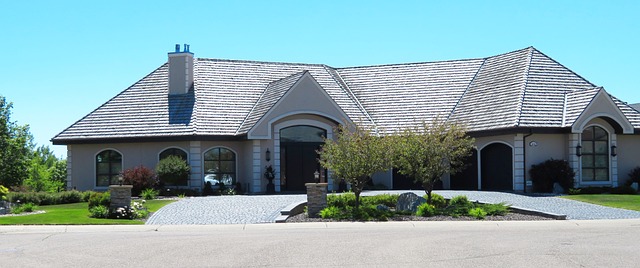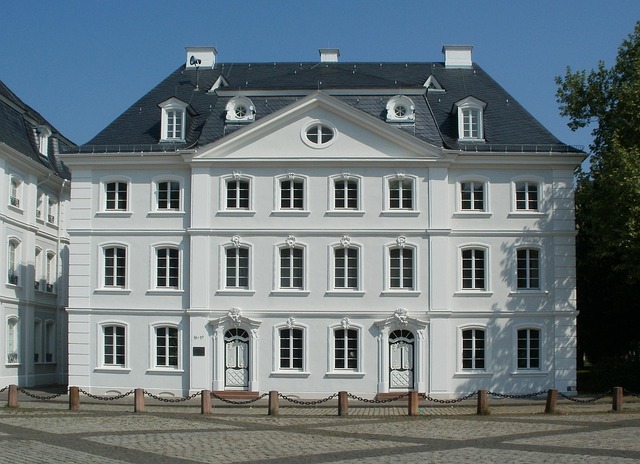When considering the purchase of an Executive Condominium (EC) or a HDB Resale Flat in Singapore, it's important to factor in the unique eligibility criteria and long-term implications for both homeowners and investors. ECs are designed for couples with at least one Singaporean, offering a hybrid between public and private housing that can appreciate in value as they transition to full condominium status. HDB Resale Flats provide a stable, affordable option with the potential for steady appreciation over time. Both types of properties are influenced by a range of government policies aimed at balancing affordability with market dynamics, including measures like LTV limits, grant eligibility criteria, TDSR, ABSD, and SERS. Prospective buyers must weigh these factors alongside their financial objectives, investment timelines, and the specific needs of their family to make an informed decision in Singapore's vibrant property market. Whether you're a first-time homeowner or a seasoned investor, understanding the nuances of ECs and HDB Resale Flats is key to navigating the housing landscape successfully.
Navigating the Singaporean property market presents prospective homeowners with a choice between an Executive Condominium (EC) and a Housing & Development Board (HDB) resale flat. This article dissects the dynamics influencing EC and HDB resale prices, tracing their evolution from public to private housing. From understanding market trends to evaluating long-term investment value, we delve into the cost breakdowns and eligibility criteria that define these housing options. Government policies play a pivotal role in shaping pricing strategies for both ECs and HDBs, which this piece will illuminate for discerning buyers.
- Understanding the Market Dynamics: Executive Condo (EC) vs HDB Resale Prices
- Factors Influencing EC and HDB Resale Values
- The Evolution of Executive Condos: From Public to Private Housing
- Comparing the Costs: Breakdown of EC and HDB Resale Expenses
- Eligibility Criteria: Who Can Buy an Executive Condo vs HDB Resale Flat?
- Long-Term Value Appreciation: Investment Perspectives on ECs and HDBs
- Government Policies: How They Shape EC and HDB Pricing Strategies
Understanding the Market Dynamics: Executive Condo (EC) vs HDB Resale Prices
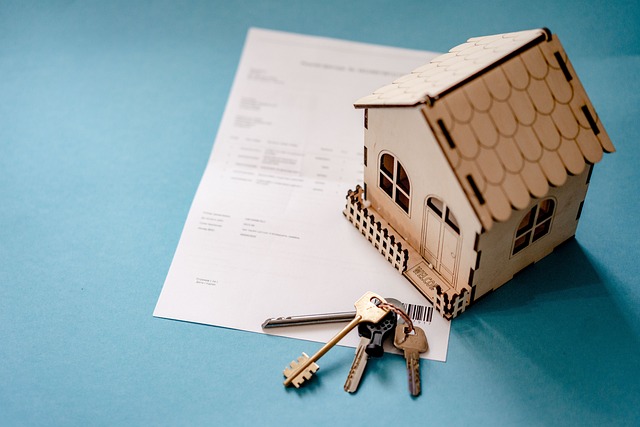
In Singapore’s dynamic property market, discerning the nuances between Executive Condominium (EC) and HDB resale prices is crucial for potential homeowners. The pricing of ECs, which are a hybrid of public and private housing, often reflects a balance between affordability and the amenities offered, positioned as they are for upgraders from HDB flats or young families looking for larger living spaces. Market dynamics influencing EC prices include location desirability, unit size, age of the development, and the supply of new ECs in the pipeline. These factors interplay to shape the price trajectory of ECs, making them a unique segment within the property landscape.
On the other hand, HDB resale prices are influenced by a different set of considerations. Factors such as the flat’s condition, lease left, location near amenities, and the broader economic climate all play significant roles in determining resale prices. The resale market is also affected by government policies, such as those pertaining to the Minimum Occupation Period (MOP) and the Public Housing Grant (PHG), which can impact resale values. Prospective buyers often weigh these factors against their budgets and long-term plans, as HDB resale flats represent a more direct stepping stone for first-time homeowners. Understanding these market dynamics is essential for anyone looking to navigate the differences between EC and HDB resale prices effectively.
Factors Influencing EC and HDB Resale Values

When considering the resale values of Executive Condos (ECs) and Housing & Development Board (HDB) flats in Singapore, it’s crucial to examine various factors that influence their market prices. The location of these properties plays a pivotal role; prime districts tend to command higher prices due to their convenience, desirability, and potential for capital appreciation. Proximity to amenities such as shopping centers, schools, and MRT stations can significantly affect resale values, with units in closer proximity often fetching higher prices.
Furthermore, the age, condition, and architectural features of an EC or HDB flat are key determinants of its market value. Newer units or those that have undergone renovation and maintain a high standard of maintenance can retain or even increase their resale values. The size and layout of the property also impact its attractiveness to potential buyers, with larger and more functional units typically being more sought after and commanding higher prices. Market trends, such as changes in population growth, economic conditions, and policy adjustments by the government, like the Minimum Occupation Period for ECs, can also influence resale values. Investors and owners must stay informed about these factors to make well-informed decisions regarding the sale or purchase of ECs versus HDB flats in the Singapore market.
The Evolution of Executive Condos: From Public to Private Housing
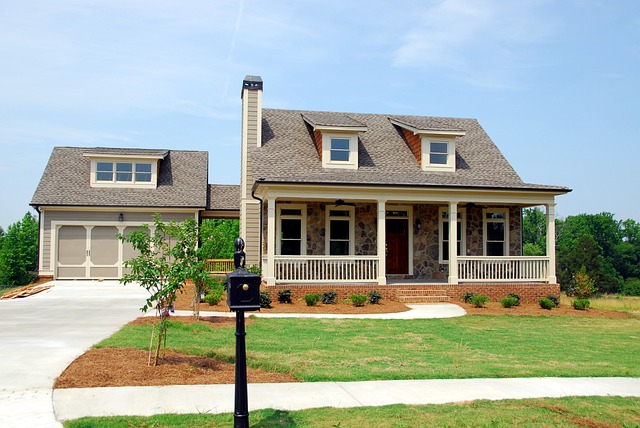
Executive Condominiums (ECs) in Singapore have undergone a significant transformation over the decades, evolving from public to private housing through a strategic policy shift by the government. Initially conceived as a hybrid housing option designed to cater to the needs of upgrading flat dwellers, ECs offered a middle-ground between the affordability of Housing & Development Board (HDB) flats and the market rates of private condominiums. Over time, ECs have become an increasingly popular choice among couples and families who are looking for a step up from public housing while retaining certain subsidy benefits. This evolution reflects the dynamic nature of Singapore’s property landscape and the government’s commitment to catering to the changing needs of its citizens.
The transition from public to private housing for ECs has been characterized by adjustments in eligibility criteria and pricing mechanisms. Over the years, ECs have seen a shift in buyer demographics, with a growing proportion of first-time homeowners entering the market. The pricing of ECs is influenced by various factors, including location, development quality, and the overall property market sentiment. As ECs matured, they have also developed a reputation for being an investment-worthy asset, with potential for capital appreciation. This trajectory underscores the adaptability of EC policy and its alignment with the housing aspirations of Singaporeans, making it a significant segment within the broader real estate ecosystem.
Comparing the Costs: Breakdown of EC and HDB Resale Expenses
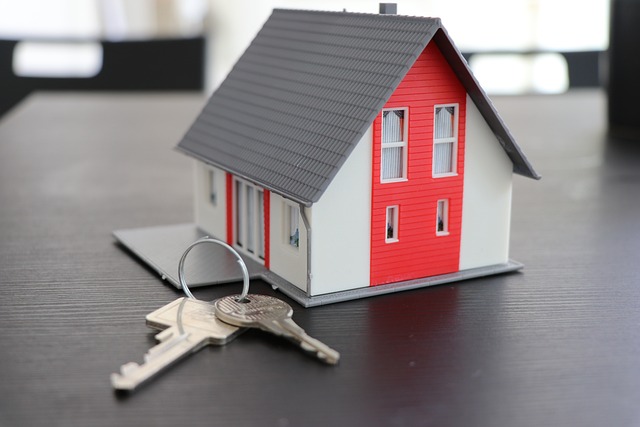
When considering residential property options in Singapore, discerning homeowners often compare the costs associated with an Executive Condominium (EC) and a Housing & Development Board (HDB) resale flat. Both types of housing cater to different needs and budgets, offering distinct advantages and expenses. An EC is a hybrid of a public and private residential real estate, designed for couples who may not meet the income ceiling for a BTO (Build-To-Order) flat but can afford more than an HDB resale flat. The purchase price of an EC is typically higher than that of a comparable HDB resale flat due to its larger size, more luxurious fittings, and often, prime location. However, the cost differential extends beyond just the upfront purchase price; maintenance fees, property taxes, and potential additional buyer’s stamp duty (ABSD) for second-time buyers are factors that influence the long-term financial commitment of owning an EC.
In contrast, HDB resale flats offer affordability and stability as they are directly sold by HDB to eligible applicants without a profit margin. The initial investment might be lower compared to an EC, but potential buyers should consider other associated costs such as legal fees, valuation fees, and stamp duty. Additionally, ongoing expenses like maintenance fees and repair costs must be factored into the long-term budget. While HDB flats are subsidized by the government, thus keeping living costs lower, ECs offer a balance between the privacy and facilities of a condominium and the affordability of public housing. Prospective buyers must weigh these costs against their financial planning and long-term goals to determine which option better suits their needs. The decision hinges on a comprehensive cost analysis that includes both immediate expenses and those over the property’s expected lifespan.
Eligibility Criteria: Who Can Buy an Executive Condo vs HDB Resale Flat?
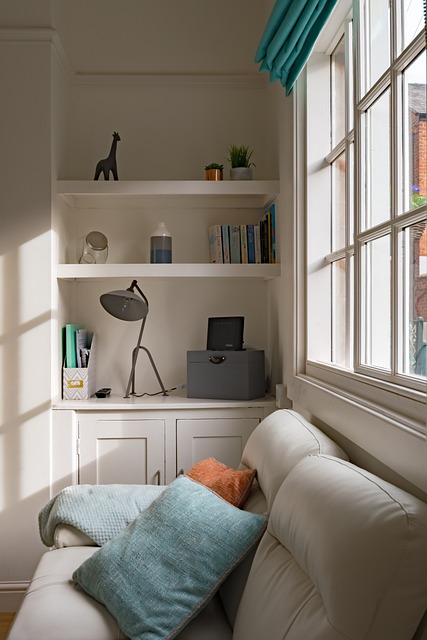
When considering the housing market in Singapore, potential homeowners often ponder between the affordability of an Executive Condominium (EC) and the appeal of a HDB Resale Flat. Both options offer a stable foundation for families to grow, but they come with distinct eligibility criteria that shape the choices of buyers. For instance, individuals or families looking to purchase an EC must meet certain conditions set by the Housing & Development Board (HDB). They typically cannot own a private property nine months before applying for an EC, and they must intend to occupy the unit for a minimum of five years upon completion. On the other hand, Singaporeans and Permanent Residents have more flexibility with HDB Resale Flats; they can purchase these flats at any time, without the same occupancy stipulation as ECs. However, both options are designed to be financially accessible, with pricing mechanisms that cater to different income levels through the use of various grants and schemes like the CPF Housing Grant (CHG). Prospective buyers should assess their financial situation and eligibility carefully before deciding between an Executive Condominium or a HDB Resale Flat, as each has its own set of advantages and long-term implications. The choice largely depends on one’s housing needs, financial readiness, and the specific benefits that align with their future plans.
Long-Term Value Appreciation: Investment Perspectives on ECs and HDBs

In the realm of property investment in Singapore, the long-term value appreciation of both Executive Condos (ECs) and Housing & Development Board (HDB) flats is a focal point for many investors. ECs, which are a hybrid of private and public housing designed for couples with at least one Singaporean citizen, offer a unique investment opportunity. Over the years, ECs have shown potential for capital appreciation, particularly as they transition from being ECs to full privatized condominiums after reaching the fifth anniversary from their Temporary Occupation Permit (TOP) date. This maturation process can lead to an uplift in property values, making them an attractive proposition for investors looking at long-term gains.
On the other hand, HDB flats have historically been a stable and accessible form of housing for Singaporeans. The government’s resale policy for HDB flats has implications for their market value, with certain constraints affecting resale prices. However, the strategic locations of many HDB flats, coupled with the stability of the public housing market, often results in steady appreciation over time. Both ECs and HDBs serve different segments of the population, yet they share a common trait in terms of potential value appreciation. Investors need to consider various factors such as location, demand, and the broader economic conditions when assessing the long-term investment potential of both property types. The decision to invest in an EC or an HDB flat should be informed by one’s financial goals, investment horizon, and a nuanced understanding of the property market dynamics in Singapore.
Government Policies: How They Shape EC and HDB Pricing Strategies
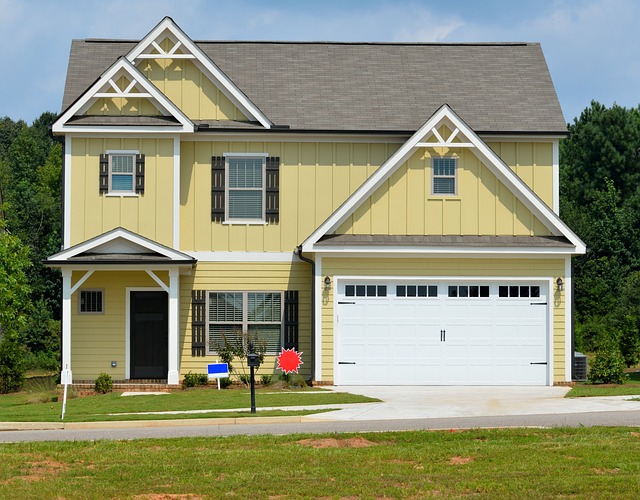
The pricing strategies for Executive Condominiums (ECs) and Housing & Development Board (HDB) flats in Singapore are significantly influenced by government policies, which aim to balance housing affordability with market dynamics. The Housing and Urban Development Company (HUDC) has traditionally been a precursor to the EC scheme, providing an avenue for upgrading from public to private housing. Government interventions often come in the form of cooling measures, loan-to-value (LTV) limits, and grant eligibility criteria. These policies affect the demand and supply dynamics within the property market, thereby influencing the pricing of ECs.
For instance, the introduction of a shorter minimum occupancy period for ECs has encouraged earlier resale activity, impacting resale prices. Similarly, the total debt servicing ratio (TDSR) framework and additional buyer’s stamp duty (ABSD) for subsequent property purchases are mechanisms that the government uses to manage price escalation and ensure that ECs remain accessible to younger families. On the HDB front, policies like the Selective En Bloc Redevelopment Scheme (SERS) and the timing of new flat launches also play a role in shaping resale prices. The strategic pricing of both ECs and HDB flats is thus a reflection of government policy objectives, designed to meet the housing needs of different segments of the population while maintaining a stable and sustainable property market.
In concluding our exploration of the real estate landscape in Singapore, it’s evident that both Executive Condominium (EC) and HDB resale options present unique advantages for potential homeowners. Market dynamics, influenced by factors such as location, infrastructure development, and economic conditions, play a pivotal role in shaping the prices of ECs versus HDB resale flats. With the evolution of ECs from public to private housing, they have emerged as a viable alternative for those seeking a step up from traditional HDB living without fully transitioning into private property. A detailed breakdown of expenses associated with both types of properties further clarifies the cost considerations involved in making an informed decision. Eligibility criteria delineate the distinct paths available to buyers, with each option catering to different stages and preferences in life. Long-term investment perspectives highlight that while ECs and HDBs serve different needs, both have potential for value appreciation, albeit influenced by government policies that continue to guide and shape pricing strategies. Prospective homeowners are advised to weigh these factors carefully against their personal circumstances and aspirations.

